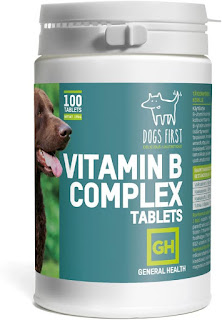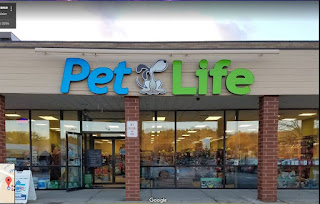90% believe flexible working boosts employee morale
10 Best Hip And Joint Supplements For Dogs
10 Best Hip And Joint Supplements For DogsPet suppliesRecombu Product Features Nutramax
Nutramax 70990 ratings
More info 2 Product Features PetIQ
PetIQ 29551 ratings
More info 3 Product FeaturesCan I Give My Dog Human Vitamins?
Dogs can gobble up all sorts of things they shouldn't, even when you try to keep stuff away.
But sometimes they sneak into things, like your vitamins.
If your dog swallows your vitamins, don't freak out.
Dogs shouldn't have human vitamins, and how bad it is depends on their age, size, health, type of vitamin, and how much they ate.
First thing to do is call your vet as soon as you find out.
Do you have a pet video or picture you'd like to share with The South African?
If so, email info@thesouthafrican.Com or WhatsApp to 060 011 021 1
Call your vet right away when your dog eats your vitamins.
Usually, your dog will be okay, but if they ate a bunch or certain types, it might cause problems because too much human vitamins can be bad.
Tell your vet exactly what and how much your dog ate—it helps get a better result.
ALSO READ: Can a dog be allergic to other dogs?
People often take vitamin D because they don't get enough sun. It's good for us, but for dogs, too much isn't great.
If your dog eats your vitamin D, they might lose their appetite, throw up, or have a runny tummy.
Lots of vitamin D could make their calcium levels go up and hurt their kidneys.
CLICK HERE TO READ MORE ARTICLES BY LISA GREYSON
This article was compiled with the help of Artificial Intelligence
Are Mushrooms Good For Dogs?
Editorial Note: We earn a commission from partner links on Forbes Advisor. Commissions do not affect our editors' opinions or evaluations.
While mushrooms can be great on a pizza, the wrong kinds of mushrooms can be deadly if ingested. And if you're someone who loves sharing snacks with your pup, you might be wondering, can dogs eat mushrooms safely?
The answer is, it depends. While the American Kennel Club notes some mushrooms are safe for dogs, veterinarians suspect that wild mushroom poisoning is an underreported cause of death in canines. So which mushrooms, exactly, are good for dogs? Even then, the answer is still complicated.
Learn more about mushrooms for dogs, including which are non-toxic, health benefits of mushrooms for dogs, how to safely feed mushrooms to your dog, and whether pet insurance covers either mushroom poisoning or medicinal mushrooms for dogs.
Is Your Dog Covered?Get Peace of Mind With the Best Pet Insurance of 2023
Can Dogs Eat Mushrooms?Mushrooms aren't necessarily the best choice of treat to give your dog. While store-bought mushrooms (like white button or portabella) are generally safe for dogs to eat if they're prepared correctly, the nutrients they offer don't have enough bioavailability for dogs to benefit much from them.
Not only that, but many mushroom varieties, particularly those that grow in the wild, are toxic to dogs.
"Wild mushrooms are one of the many dangers in taking pets to grassy or woody areas, particularly in the spring and fall seasons," says Dr. Danielle Rutherford, V.M.D., associate veterinarian at Westside Veterinary Center in New York City. Even mushrooms deemed safe can be mildly toxic to dogs if eaten raw.
So while dogs can safely eat properly prepared store-bought mushrooms, the risks might outweigh the benefits.
"A big exception to this rule is the case of medicinal mushrooms," Rutherford says. Though actual studies are limited, there is anecdotal evidence that medicinal mushrooms, like shiitake or maitake, have immune-boosting properties that may slow the growth of tumors and reduce inflammation.
Can Puppies Have Mushrooms?The issues with feeding mushrooms to dogs are compounded with young puppies due to their smaller bodies and weaker immune systems. Besides that, puppies explore the world by testing tastes and textures with their mouth—they tend to eat first and ask questions later.
This tendency makes puppies much more likely than older dogs to eat poisonous mushrooms that they find growing in the backyard. Giving puppies mushrooms as treats might encourage this behavior and cause confusion when you try to forbid your pup from chomping on toadstools.
Although it's generally safe for puppies to eat store-bought mushrooms, unless they have a health issue that might benefit from medicinal mushrooms, there's no compelling reason to feed mushrooms to your pup.
Which Mushrooms are Safe for Dogs to Eat?When served cooked and unseasoned, dogs can have these mushrooms without any worries about toxicity:
Also, these medicinal mushrooms are safe for dogs:
Dogs can eat mushrooms in moderation—as long as they're store-bought and properly prepared. If you decide to give mushrooms to your dog, they should be factored in with other treats, which should make up no more than 10% of your dog's daily calories. But keep in mind that even safe mushrooms might cause gastrointestinal issues in some dogs, so to be safe, only give them a few pieces at a time.
Medicinal mushrooms typically come either dried or in powdered form. When giving them to your dog, refer to the dosage instructions on the packaging, and adjust to your dog's weight as needed. If you're not sure, ask your vet how much your dog should be taking. It's generally best to start out with the smallest dose, and then adjust upwards as needed.
What to Do if Your Dog Eats a Wild MushroomWhile not every mushroom that grows in the wild is toxic, most are, and it's best not to take chances.
"There are many types and shapes of mushrooms, and not all of them are poisonous, but as a pet parent, when outdoors, it is best to assume they may be toxic if your pet ingests one," Rutherford says.
If your dog or puppy eats a wild mushroom, you should treat it like an emergency. Call your veterinarian right away or take your dog to an animal emergency room. If you can, bring a sample of the mushroom with you so the vet can identify it and provide your dog with the proper treatment
"If your pet's stable, it's best to induce vomiting for decontamination," Rutherford says. "Activated charcoal may be given to coat the stomach and prevent further absorption of the toxins."
Signs of Mushroom Poisoning in DogsDepending on the mushroom and the type of toxin it contains, it can take anywhere from 15 minutes to 24 hours for symptoms of poisoning to appear. If you notice any of these signs of mushroom poisoning, you should contact your vet ASAP:
Many accident and illness pet insurance policies will reimburse you for costs related to poisoning in dogs, including mushroom poisoning. Some pet insurance companies may also reimburse you for animal emergency room visits or pet poison hotline fees related to mushroom poisoning.
As far as medicinal mushrooms, most pet insurance companies don't cover herbal remedies or over-the-counter supplements for dogs.
Whether your pet insurance will cover medicinal mushrooms or reimburse you for costs associated with mushroom poisoning depends on your individual policy. Refer to the details of your pet insurance policy, or contact your insurance company to find out for certain whether either of these are included in your policy.
How to Safely Feed Mushrooms to DogsEven with non-toxic mushrooms, there are a few potential problems with feeding mushrooms to dogs, including:
Follow these steps to safely feed mushrooms to your dog:
It's generally easiest and safest to give your dog medicinal mushrooms in powdered supplement form. Be sure to consult with your veterinarian before adding any new supplements to your dog's diet.
Are Mushrooms Good for Dogs?Any mushroom that's safe for you to eat is also safe for your dog to eat. But does that mean mushrooms are good for dogs?
Mushrooms contain a lot of vitamins and nutrients, and some have illness-fighting properties. The problem is that dogs don't derive the same amount of nutrients from mushrooms that humans do. So while edible mushrooms might not hurt your dog, whether mushrooms are actually beneficial depends on your dog's health needs.
Health Benefits of Mushrooms for DogsEdible mushrooms generally contain a certain amount of vitamins and nutrients, including A, B, C and D vitamins, iron, magnesium, potassium, copper and selenium, as well as dietary fiber. That said, the medicinal mushrooms listed above are the real powerhouses when it comes to canine health. Health benefits of medicinal mushrooms for dogs include:
Immune SupportThe polysaccharides and antioxidants found in several varieties of medicinal mushrooms also boost the immune system to help the body fight a wide range of diseases. Many of them also contain antiviral and antibacterial properties that aid in fighting and preventing contagious illnesses.
Gut SupportCordyceps are used to treat leaky gut, and the polysaccharides found in several mushroom varieties have also been found to improve intestinal health, reduce inflammation in the bowels and improve digestive issues.
InflammationMedicinal mushrooms contain anti-inflammatory properties that reduce inflammation throughout the body. This makes them effective at relieving joint pain, as well as other types of pain, and aiding with inflammatory illnesses and auto-immune disorders.
Heart and Lung SupportTurkey tail and other mushrooms have been used to treat pulmonary disorders, manage cardiac arrhythmias, lower cholesterol, prevent blood clots and improve overall heart health.
Liver and Kidney SupportTurkey tail, maitake mushrooms and cordyceps have each been used to improve overall liver function and as a treatment in chronic liver disorders. Cordyceps have also been used to treat kidney failure, while reishi mushrooms are helpful in managing kidney issues that stem from diabetes.
Allergy-Fighting PropertiesBoth reishi and shiitake mushrooms contain antihistamines that can help relieve itching and other symptoms in dogs with allergies.
Controlling Blood SugarBoth maitake and reishi mushrooms can reduce blood glucose levels and help manage diabetes in dogs.
It's important to exercise caution and talk to your vet when choosing medicinal mushroom supplements for your dog.
"In the United States, nutritional supplements are not as closely monitored as prescription medications, and it's not true that the ingredients in every package will match the label," Rutherford says. "Reputable products, however, recommended by veterinarians have been used in many cancer patients and are thought to help improve the efficacy of the body's immune cells."
Featured Partner Offers
Maximum annual coverage
$5,000, $10,000, Unlimited
Reimbursement choices
70%, 80%, 90%
Deductible choices
$100, $250, $500
Maximum annual coverage
$5,000, $10,000, Unlimited
Reimbursement choices
70%, 80%, 90%
Deductible choices
$100, $250, $500
Maximum annual coverage
$2,500, $3,000, $4,000, $5,000, $7,000, $10,000, $15,000, $20,000, Unlimited
Reimbursement choices
70%, 80%, 90%
Deductible choices
$100, $250, $500, $750, $1,000
As healthy as medicinal mushrooms may be, the mushrooms you put in your pasta or on your salad may not be the best snack to give your dog. Here are several other vegetables dogs can eat that will pack more of a nutritional punch while avoiding any of the risks associated with mushrooms:
Dogs can eat the same mushrooms you can eat, provided they're cooked and unseasoned. But dogs don't derive the same nutritional benefits from mushrooms that humans do, and many varieties of wild mushrooms are toxic and even deadly. While medicinal mushrooms can deliver powerful health benefits to immuno-compromised dogs and dogs fighting cancer, there's really no good reason to feed mushrooms to your dog as a treat.
Frequently Asked Questions (FAQs) Can dogs eat cooked mushrooms?Yes. As long as the mushrooms aren't found in the wild and are safe for humans, dogs can eat cooked mushrooms. But they should be prepared without butter, oil or seasoning and given to your dog plain.
Can dogs eat portabella mushrooms?Yes, dogs can eat portabella mushrooms, as long as they're cooked and served without any seasoning or fats.
Can dogs eat baby bella mushrooms?Baby bella mushrooms are safe for dogs to eat, as long as they're cooked and prepared for your dog without any oils or seasoning.
Can dogs eat raw mushrooms?No, dogs shouldn't eat raw mushrooms. Even mushrooms that are safe to eat might be mildly toxic to your dog if given raw, and they might cause stomach upset or digestive issues. Cooking your dog's mushrooms will also increase the bioavailability of vitamins and nutrients.
Can dogs eat white mushrooms?The white button mushrooms that you buy at the grocery store are safe for dogs to eat, as long as they're cooked and properly prepared without any fats or seasonings. But many white mushroom varieties growing in the wild are poisonous and should not be eaten by your dog.
Can dogs eat shiitake mushrooms?Shiitake mushrooms contain many medicinal properties and health benefits for dogs. Your dog can eat them cooked and unseasoned, but they'll get the most health benefits from a shiitake mushroom supplement in powdered form.





Comments
Post a Comment